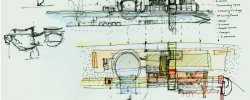Oxford Degrees

The system of teaching at Oxford combines the best of one-to-one or small group tutorials in college, with the wealth of resources in the University. Students share lectures, classes and practicals in their department, depending on their subject. Studying at Oxford is exciting, a springboard from which to dive into an ocean of opportunities.
Courses
The choice of course is the most important part, because it is what you will spend most of your time on for the next 3 or more years.
Catherine, 3rd year
Whichever college you go to, you will be studying the same course: the University organises the lectures and practical classes, and sets the examinations.
Whichever course you choose, an Oxford degree aims to make you think for yourself, logically and laterally.
All our degree courses have a compulsory core, plus various options you can choose from, letting you tailor the course to your personal interests. The course pages give examples of options.
You should make sure that your chosen degree and the way it is taught at Oxford are right for you. Usually, you cannot change courses after you start; where this is possible, the course page mentions it.
Combined courses
Joint courses at Oxford allow you to study two or more subjects together. Joint course combinations (sometimes called joint schools) are carefully chosen to provide opportunities to explore different subject areas and examine the connections between them, revealing insights that you might not find by studying the individual subjects alone. There is strong competition for combined courses, and you must show your aptitude for each part of the degree.
Lectures
All students in a particular subject discipline will come together for lectures. These provide core information about different elements of your course that you may find useful in tutorials, essays or examinations.
Colleges
Tutorials in colleges are central to study at Oxford. They give you the chance to discuss your subject with an expert in the field. Your tutor gives individual support and encourages you to develop to your full potential.
Tutorials take place at least once a week and it’s up to you to research and prepare for them. Then you meet your tutor, perhaps with one or two other students, to discuss an essay or solutions to set problems. The aim is to review your answers or theories and explore ideas that arise in discussion.
A tutorial relies on the exchange of ideas between you, your tutor and other students. You need not be experienced in debating, you just need to be ready to present and defend your opinions, accept constructive criticism and listen to others. Tutorials develop your ability to think for yourself, not only an essential ability for academic success but also a skill that the best employers look for in Oxford graduates.
Labwork and fieldwork
All students in a particular subject discipline come together for labwork and/or fieldwork. The course pages give more detail. Typically, science students can expect at least two half-days in the lab per week.
Assessment
In most courses you sit exams in your first year, which you must pass to continue the course, but they do not count towards your degree. You then work towards final exams, which usually take place in your last term.
Science students sit some exams in the second year. Some exams may be replaced by projects or dissertations. Most science courses have a fourth year; this may be entirely research-based, or part research and part exams.
Other students also sit finals in their last term – typically several exams, each lasting three hours, within a two-week period. In some subjects like Modern Languages, there is also an oral exam. Some exams may be replaced by a thesis and/or extended written work.







